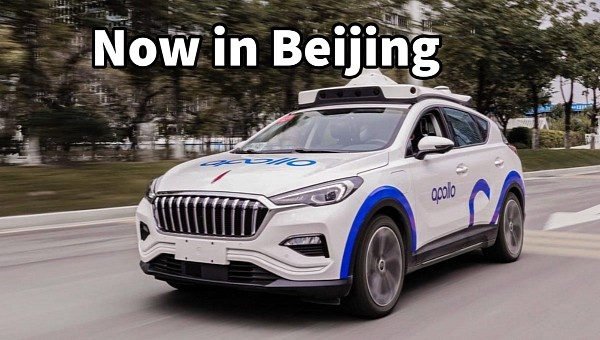The U.S. is concerned that China will take the lead in technology, especially when it comes to autonomous vehicles and artificial intelligence. Congress has delayed legislation to ease the regulation of self-driving cars while China hits new milestones in deploying autonomous vehicles.
Earlier this week, GM CEO Mary Barra met with U.S. senators in a bid to push legislation that would speed up the deployment of driverless vehicles on U.S. roads. GM's Cruise subsidiary operates a robotaxi service in San Francisco and is preparing to launch an autonomous driving pod without a steering wheel or pedals. However, it cannot do that unless legislation is adopted to expand the number of self-driving vehicles that could be deployed with exemptions. While Cruise can operate a commercial service in certain restricted areas, it has a cap on the number of self-driving cars it can have on the streets.
Restrictions imposed on autonomous vehicles stifle autonomous driving development. As others have warned before, the U.S. risks lagging behind China in self-driving. In China, autonomous-driving companies don't face similar restraints. Recently, Baidu announced it got a license to expand robotaxi services in Beijing, China's capital. Baidu's service, named Apollo Go, is already live in several major Chinese cities. Its self-driving vehicles complete an average of more than 15 rides per vehicle per day, on par with traditional ride-hailing services.
Apollo Go has been previously approved to operate in Wuhan and Chongqing. With the Beijing permit, Apollo Go is the first service worldwide to deploy driverless vehicles in a capital city. For now, Baidu will only operate 10 driverless cars in Beijing's Yizhuang Economic Development Zone but intends to expand its offering in China's capital city. Yizhuang is one of the most active hubs for autonomous driving in China.
Baidu says it has accumulated more than 50 million kilometers (31 million miles) of Level 4 autonomous driving since 2013, when it deployed its autonomous driving technology. To put things in perspective, GM's Cruise boasted about having about 700,000 fully-autonomous miles as of December 2022. Baidu announced that it would have the largest fully driverless taxi service area in 2023, aiming to expand service to 65 cities by 2025 and 100 cities by 2030.
In the U.S., where legislation limits the number of autonomous vehicles companies can operate, GM's Cruise is struggling to expand its services. At the same time, other robotaxi services have disappeared or have been forced to lay off employees. Argo AI, an autonomous driving startup backed by Ford and Volkswagen, has left the market after burning billions to develop driverless vehicles. Eventually, Ford decided to use the staff and know how to develop new driver-assist features for its cars. At the same time, Waymo has announced laying off 8% of its staff this year.
Restrictions imposed on autonomous vehicles stifle autonomous driving development. As others have warned before, the U.S. risks lagging behind China in self-driving. In China, autonomous-driving companies don't face similar restraints. Recently, Baidu announced it got a license to expand robotaxi services in Beijing, China's capital. Baidu's service, named Apollo Go, is already live in several major Chinese cities. Its self-driving vehicles complete an average of more than 15 rides per vehicle per day, on par with traditional ride-hailing services.
Apollo Go has been previously approved to operate in Wuhan and Chongqing. With the Beijing permit, Apollo Go is the first service worldwide to deploy driverless vehicles in a capital city. For now, Baidu will only operate 10 driverless cars in Beijing's Yizhuang Economic Development Zone but intends to expand its offering in China's capital city. Yizhuang is one of the most active hubs for autonomous driving in China.
Baidu says it has accumulated more than 50 million kilometers (31 million miles) of Level 4 autonomous driving since 2013, when it deployed its autonomous driving technology. To put things in perspective, GM's Cruise boasted about having about 700,000 fully-autonomous miles as of December 2022. Baidu announced that it would have the largest fully driverless taxi service area in 2023, aiming to expand service to 65 cities by 2025 and 100 cities by 2030.
In the U.S., where legislation limits the number of autonomous vehicles companies can operate, GM's Cruise is struggling to expand its services. At the same time, other robotaxi services have disappeared or have been forced to lay off employees. Argo AI, an autonomous driving startup backed by Ford and Volkswagen, has left the market after burning billions to develop driverless vehicles. Eventually, Ford decided to use the staff and know how to develop new driver-assist features for its cars. At the same time, Waymo has announced laying off 8% of its staff this year.






